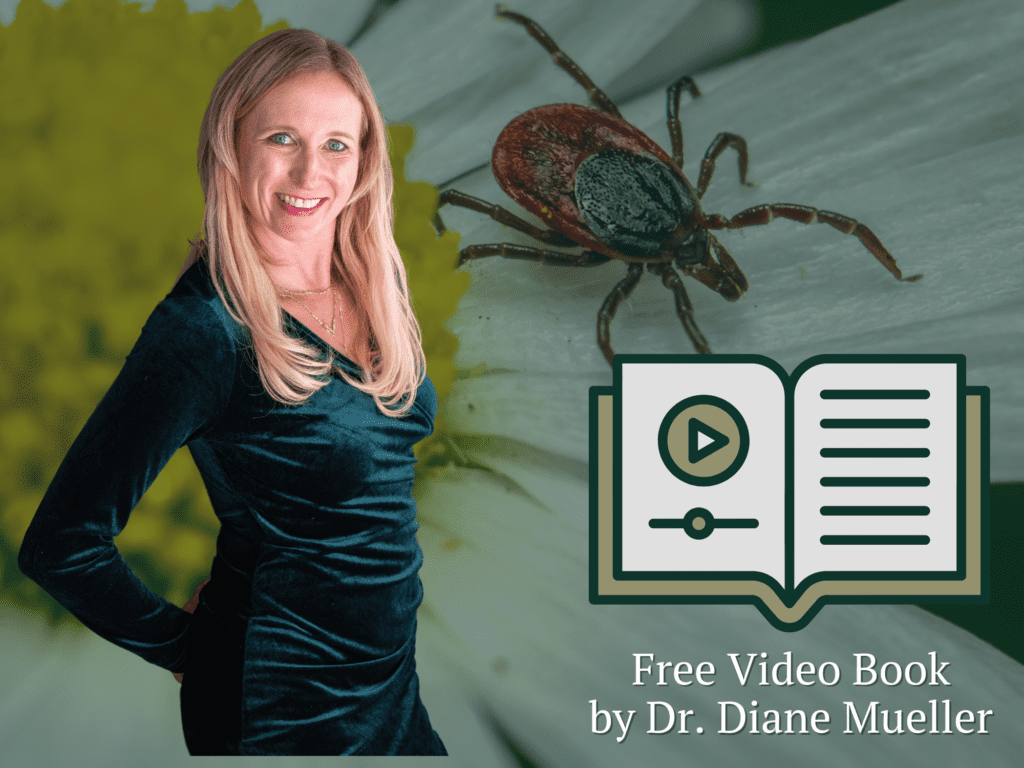

by Dr Diane Mueller – Struggling with brain fog can be a challenge — thoughts are sluggish, focus is scattered, and productivity drops. Despite its prevalence, many don’t know how to effectively tackle it. This article offers practical steps and insights for getting rid of brain fog by making lifestyle adjustments, addressing health issues, and improving diet, sleep quality, and stress management
We have helped thousands of people restore their health and quality of life by diagnosing and treating their Mold Illness
Prioritize Nutrition and Sleep: Incorporating anti-inflammatory foods and aiming for 7-9 hours of quality sleep each night are fundamental steps in combating brain fog.
Manage Stress and Exercise: Techniques like meditation and regular physical activity significantly improve mental clarity by reducing stress and enhancing brain health.
Consult Healthcare Professionals: For persistent brain fog, especially related to Lyme condition or mold illness, seeking professional advice is crucial for targeted treatments.
Adjust Lifestyle and Diet: Reducing intake of sugar, coffee, and alcohol while exploring intermittent fasting and spending time outdoors can provide a great boost to brain health.
Supplement Wisely: Omega-3 fatty acids, Vitamin B12, Ginseng, Adaptogens, L-theanine, and Creatine are supplements that may help improve cognitive function when dealing with brain fog.
Embrace a Holistic Approach: Combining lifestyle changes, proper diet, stress management, and appropriate supplementation under professional guidance is key to effectively clearing brain fog.
To combat brain fog effectively, prioritizing your sleep routine is paramount. Ensure you’re getting 7-9 hours of quality sleep each night by sticking to a consistent schedule. Dim the lights and power down electronics an hour before bed to signal to your brain that it’s time to wind down. Improving your sleep habits not only refreshes your mind but is a foundational step in how to fight brain fog.
Chronic stress is a significant contributor to brain fog. Adopt stress-reduction techniques such as mindfulness, deep breathing exercises, or yoga. Regular practice can help clear your mind, enhance focus, and decrease the impact of daily stressors on your cognitive function.
Reducing sugar intake can have a profound impact on clearing brain fog. High sugar levels can disrupt your gut health, which is closely linked to brain function. Opt for natural sugars found in fruits and aim to eliminate processed sugars from your diet.
While coffee and alcohol can provide temporary relief or pleasure, they may contribute to brain fog in the long run. Limiting intake can help stabilize your energy levels and improve overall brain health.
Intermittent fasting can be a powerful tool to reset and rejuvenate your brain. It helps to improve metabolic health, reduce inflammation, and support neurogenesis, all of which play a role in alleviating brain fog.
Embracing the outdoors, regardless of the weather, can enhance your mental clarity and focus. A simple walk in nature can increase blood flow to the brain and reduce signs of brain fog, making it a potent strategy in how to aid brain fog.
Engaging in activities that stimulate your mind, such as puzzles, crosswords, or other brain games, can enhance cognitive function. Regularly challenging your brain helps to keep it sharp and can be an effective way to stop brain fog in its tracks.

When you’re dealing with persistent brain fog, finding effective strategies to clear the haze is a priority. For those exploring the challenges of Lyme condition and mold illness, cognitive signs can be particularly stubborn. Plus to lifestyle modifications, supplements may offer some much-needed clarity. Here, we’ll explore several options that have shown promise for enhancing cognitive function.
Omega-3 fatty acids are crucial for brain health, supporting membrane structure and enhancing neuron function. If you’re wondering how to aid brain fog, incorporating omega-3s into your regimen might be a step in the right direction. Found in fish oil and flaxseed oil, these fatty acids are known for their anti-inflammatory properties, which can be especially beneficial for those affected by Lyme condition and mold illness. A daily dose of omega-3 supplements could help reduce inflammation and promote better cognitive function.
Vitamin B12 plays a pivotal role in brain health, aiding in the formation of red blood cells and the maintenance of central nervous system function. Individuals struggling with Lyme condition and mold illness often find themselves asking how to combat brain fog effectively. Ensuring adequate vitamin B12 intake can help. This vitamin is particularly important for those with dietary restrictions or absorption issues, as deficiency has been directly linked to cognitive challenges. Supplementing with vitamin B12 may support energy levels and cognitive clarity.
Ginseng, a potent herbal supplement, has been used for centuries for its cognitive-enhancing properties. If you’re figuring out how to fight brain fog, consider adding ginseng to your daily supplement routine. Research indicates that ginseng can improve mental performance, energy, and immune function—areas often compromised by Lyme condition and mold exposure. Start with a modest dose to gauge your tolerance and response.
Adaptogens are a class of herbal supplements known for their stress-reducing effects. When tackling the question of how to stop brain fog, managing stress is a crucial component. Herbs like ashwagandha, rhodiola, and holy basil help balance the body’s stress response, potentially easing brain fog’s grip on your mental clarity. Incorporating adaptogens may not only assist in clearing the fog but also support overall resilience to stressors associated with chronic illness.
L-theanine, an amino acid found in green tea, is renowned for its calming, but non-sedative, effects. For those seeking how to fix brain fog without compromising alertness, L-theanine could be a solution. It promotes relaxation while enhancing focus and attention—an ideal combination for people exploring the cognitive impacts of Lyme condition and mold illness. Whether you opt for a supplement or increase your intake of green tea, L-theanine can be a valuable addition to your cognitive toolkit.
Creatine isn’t just for athletes. This supplement supports cellular energy production, crucial for optimal brain function. Research suggests that creatine supplementation can improve short-term memory and reasoning skills, components often compromised by brain fog. If chronic illness has left you feeling mentally fatigued and searching for ways to invigorate your cognitive processes, consider introducing creatine into your regimen.
Incorporating these supplements, with a healthcare provider’s guidance, could provide a pivotal shift in managing brain fog associated with Lyme condition and mold illness. Remember, what works for one person might not work for another, so it’s important to approach supplementation with patience and an open mind as you find what helps clear the fog for you.
Tackling brain fog, especially when it’s linked to conditions like Lyme condition or mold illness, requires a thoughtful approach. The supplements mentioned, from Omega-3 fatty acids to Creatine, hold the potential to significantly enhance cognitive function and reduce inflammation. Remember, the key to success lies in tailoring these solutions to your unique needs with the help of a healthcare professional. By doing so, you’re not just addressing the signs of brain fog but also paving the way for a clearer, more focused mind. Embrace this journey with patience and optimism, and you’ll find that managing brain fog becomes an achievable goal.
References:
Kverno, K. (2021). Brain Fog: A Bit of Clarity Regarding Etiology, Prognosis, and Treatment.. Journal of psychosocial nursing and mental health services, 59 11, 9-13 .
Theoharides, T., Stewart, J., Hatziagelaki, E., & Kolaitis, G. (2015). Brain “fog,” inflammation and obesity: key aspects of neuropsychiatric disorders improved by luteolin. Frontiers in Neuroscience, 9.

We have helped thousands of
people restore their health
and quality of life by diagnosing
and treating their Lyme Disease.
“Dr. Mueller’s approach to medicine is refreshing! There is only so much you can do with western medicine and in my life I was needing a new approach. By addressing the whole body, nutritional diet factors, environmental factors, blood work, and incorporating ideas I had not previously known, I was able to break through with my conditions. I am not only experiencing less pain in my life, but through the process of healing guided by Dr. Diane Mueller, I am now happy to say I have more consciousness surrounding how I eat, what to eat and when things are appropriate. Living by example Dr. Mueller has a vibrancy that makes you want to learn and know more about your body and overall health. I highly recommend her to anyone looking for new answers, a new approach to health, or in need of freedom from pain and limitations.”
-Storie S.
Kihei, HI
